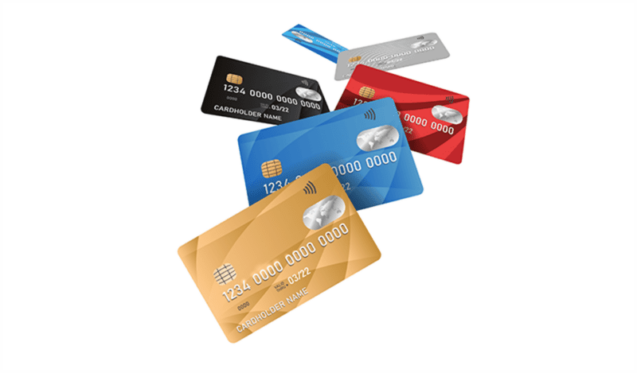Categories


If you’ve scrolled through any form of social media lately, you’ve probably seen videos of users showing off their shopping hauls, whether it be the newest makeup from Sephora or athleisure dupes from Amazon. The problem with this trend is that when the shopping total is higher than expected, it’s all too easy to swipe a credit card without worrying about the immediate impact on your bank account.
Many Americans view credit cards as free money. Whether this idea is the result of slick marketing or a lack of financial literacy, it couldn’t be further from the truth. When used unwisely, credit cards can severely damage your financial health, and the lasting effects of poor credit habits can make it difficult to achieve financial freedom and security.
So, are credit cards good or bad? The answer is more complicated than you might think, and it starts with defining debt and how it works.
Defining Debt
Debt is defined as any time one party (the borrower) owes money to another (the lender). When applying for a loan, you should distinguish between good and bad debt. Good debt is used to acquire assets or make investments that generate long-term value. Bad debt, on the other hand, is acquired when loans are used to purchase depreciating assets that lack long-term financial benefits. These loans typically have higher interest rates and can cause financial strain.
How Debt Works
Sometimes, you may need to make an essential purchase that exceeds your budget. If that happens, you can apply for a loan or line of credit from a lender. You and the lender will agree on the amount loaned (the principal) on the condition that you’ll repay the loan with interest added over a certain period (the term).
It’s critical to make regular, on-time payments. And the sooner you pay off your debts, the more you save on interest — and the better your credit score.
Calculating Your Credit Score
Your credit score is a numerical representation of your creditworthiness, ranging from 300 to 850. It demonstrates your ability to repay borrowed money.
Several factors determine your credit score:
- Payment history (35%)
- Amounts owed (30%)
- Length of credit history (15%)
- New credit (10%)
- Types of credit used (10%)
To ensure you have a good credit score, we recommend the following:
- Make regular, on-time payments toward your debt.
- Try not to use more than 30% of your credit limit.
- Keep older credit accounts open to maximize your available credit and maintain your positive credit history.
- Avoid opening too many lines of credit over a short period.
- Use a variety of credit types and manage them wisely.
Tips for Managing Debt
When it’s managed well, debt can be a good thing. With a few simple debt management tips and tricks, you can be on your way to soaring financially.
1. Track your spending.
Tracking how much you spend (your expenses, including debt repayments) and how much you regularly bring in (your income) can go a long way when working to pay off your loans. By not spending more than your income, you’ll ensure that you don’t fall behind and enter a cycle of borrowing.
2. Create a debt repayment plan.
Organize all your debts by interest rates and minimum payments. Then, develop a strategy for paying each one off. With the snowball method, you start by paying off your smallest debts and working your way up. Or, you can try the avalanche method, which involves paying off your debts with the highest interest rates first and working your way down.
3. Build and maintain good credit.
Start by evaluating your current credit score and determining how it can improve. Make payments on time and keep your credit card balance as low as possible, as your debt-to-income ratio plays a big part in determining your financial health. You should also avoid unnecessary credit inquiries or requests to check your credit report, as these can lower your credit score.
So, back to our original question: Are credit cards good or bad? The answer depends on you. The fact is that credit cards are debt and often charge high interest rates if you hold a balance. So, use your credit cards wisely. If you’re able to pay them off at the end of each month, they can help you rack up some serious rewards. But if you can't pay off the balance in full, be careful. While the last-minute purchase or shopping haul may offer instant gratification, we're here to tell you that maintaining a healthy credit score will be far more satisfying in the long run.



